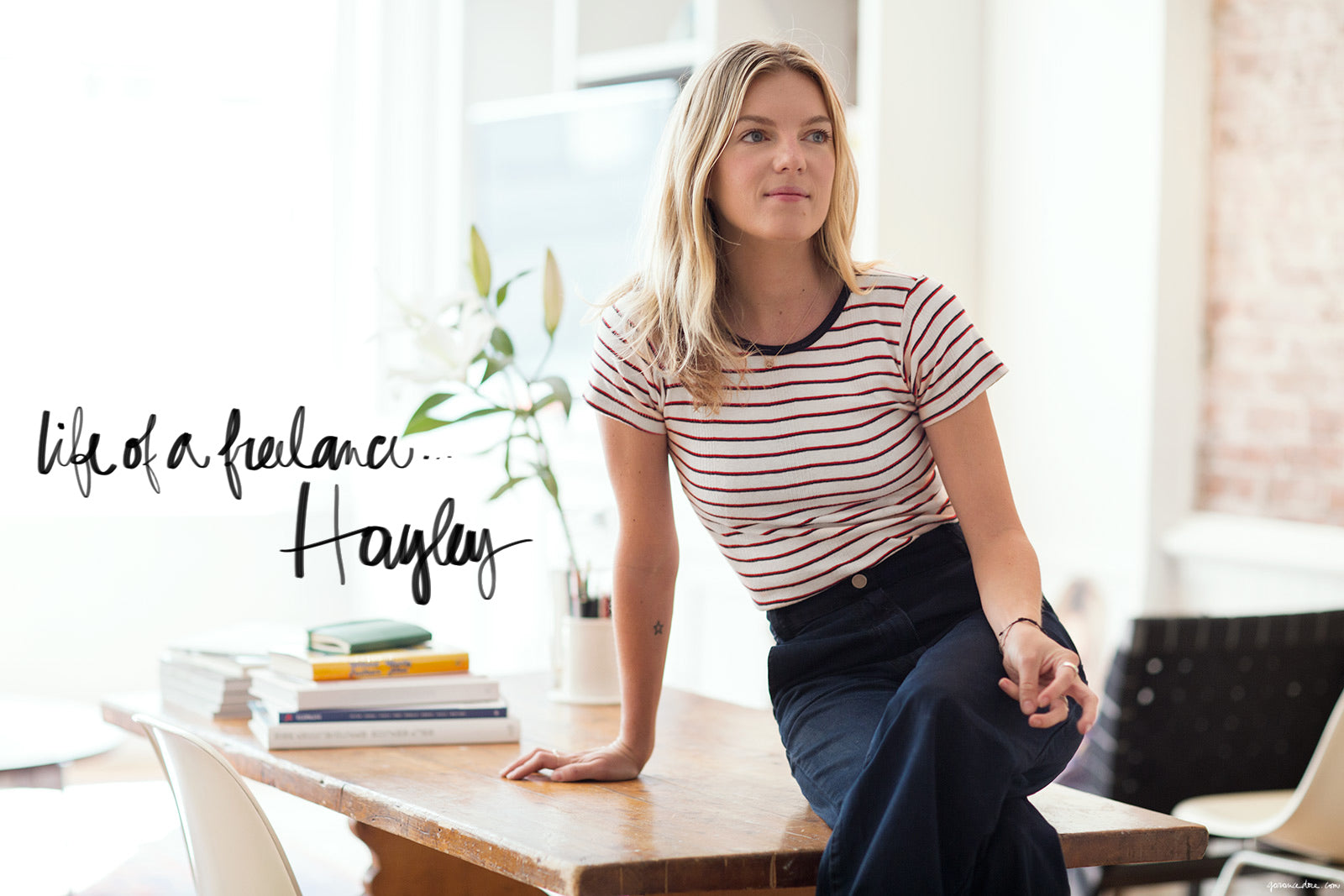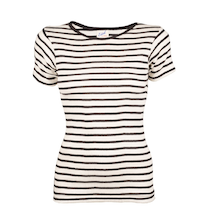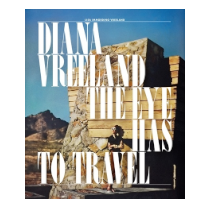9 years ago by
I often get questions about my work – and a lot of questions about going freelance.
I went freelance when I started and, even though it’s the most nerve-wracking thing at first, there are also a lot of positive and interesting things about it. And when I talk about it with my other freelance friends, I realize we all started the same way – by asking around anxiously about how to do it, and learning as we went along.
So I thought it would be cool to do a little series for you on the topic, starting today with Hayley!
Hayley Phelan | Freelance Fashion Journalist
“I went freelance in December of last year after working as a full-time writer and editor at online and print fashion titles such as Fashionista and Lucky – and it’s been the scariest and the best thing I ever did. On the one hand, it’s terrifying not knowing what your next job will be or where your next paycheck will come from – but it’s also incredibly exhilarating.
Over the months, I’ve learned to cultivate faith that everything will work out. When one gig ends, and you don’t have anything immediately lined up, you have to know something else will come along. Because it always, always does. You also have to get used to the feast or famine aspect of it. I don’t know why but deadlines always seem to fall within a few days of each other and then, after I’ve been working non-stop for a week, I’ll find myself on a Thursday with nothing pressing to do at all.
When I first started being freelance, it was those quiet days that stressed me out the most – more even than my busy days, when I had a bunch of projects due. But I’ve finally learned to enjoy and really take advantage of those random days off. Sometimes I’ll take a pottery class and noodle around in the studio for hours, or go for a long run up the West Side Highway, or even get a massage midday at this absurdly cheap Chinatown place I’m obsessed with.
What I would say about being freelance is that it’s a roller coaster; the ups are more up and the downs or more down. I think that’s because when you’re freelance, it all falls on your shoulders. So, when you succeed, the credit is all yours, but when you fail, you only have yourself to blame. Even though that sounds intense, it’s actually incredibly liberating because I’m only accountable to myself. Which, for me at least, has turned out to be incredibly motivating! Especially as a writer, it’s extremely rewarding to get to work on a wider variety of projects and topics I’m passionate about, and have more control over what I spend my time on.
I don’t know if I’ll be freelancer forever but, for right now, I couldn’t be happier.”
——————————————————–
Why did you decide to go freelance?
I’d always wanted to go freelance but never had the guts to actually do it. When Lucky began making the transition to an ecommerce platform, my role as Fashion Features Editor on the print side was eliminated right around Thanksgiving. I figured, okay, if there’s any time to give this freelance thing a real go, it’s now.
What are your tips for seeking freelance jobs?
In terms of working with completely new editors and titles, it’s important to take time to craft a really excellent pitch. But most of my jobs get passed along by people I’ve already worked for. The best way to build a good freelance career is to do good work! And, especially in the beginning, don’t turn down jobs you think are too small – use them to practice and give yourself a platform.
How do you approach negotiating your fee for a job?
I am incredibly grateful to Lauren Sherman and John Ortved–two freelance writer friends–who let me pester them endlessly with questions about how much to charge (among many other things!).
Don’t be shy to ask friends and peers for advice and help (John and Lauren have also both proofread and edited pitches for me), and then be confident in what you’re asking to charge. If negotiations ensue, don’t take it personally. It’s all about coming to a fair price for both.
Have you ever needed to extend a deadline? How did you handle that?
Unfortunately, yes. But not too often! Editors usually understand if you need an extra day or so if the story isn’t terribly urgent, and especially if you’ve been waiting on quotes or responses from sources. I try not to make excuses – I usually just explain the situation and see what we can do.
Your best tip for staying motivated when working alone…
A change of environment always helps. I usually work from home, but if I’m lagging behind on a project I’ll go to the NYU Library to power through. I don’t even bring my computer – I’ll use the library’s, which keeps me from ‘accidentally’ ending up on all my fun bookmarked pages.


































































Merci Garance pour cet article qui tombe à pic! Je suis en pleine réflexion à ce propos! Vivement la suite :)
C’est vrai que le métier de free-lance donne envie…
Il faut avoir du cran pour se lancer et je pense aussi un bon réseau. Il y a-t-il des personnes qui se sont lancés comme ça sans filer, et si oui comment ont-ils fait pour se faire connaitre ? Car là dans cet exemple Hayley avait déjà un bon bien dans le monde du journalisme.J’espère que les prochains articles répondront à cette question :)
Amélie
https://charlesrayandcoco.wordpress.com
Bonjour Amélie,
freelance n’est pas un metier en soi, c’est un statut de travail. Il y’a des professions/jobs où ce statut peut fonctionner et il y en pleines d’autres où ce n’est pas possible.
Enseigner, peut être fait en tant que free-lance, caissière non. Donc, cela dépend de ta profession si oui ou non tu pourrais l’exercer en tant que free-lance. C’est ça la question première à te poser.
C’est très intéressant! Je la trouve courageuse de s’être lancée ainsi, je ne sais pas si j’oserais! Bon, certains domaines s’y prêtent mieux que d’autres, le journalisme permet d’être plus flexible peut-être, mais je trouve génial qu’on puisse trouver un mode de travail qui nous convienne! Bonne chance à elle ;)
Cécile
http://www.maxcebycecilej.com
stimulant !!!!
I wanna start doing freelance work but it’s hard to start!
http://hashtagliz.com
Très intéressant! Je suis plus au moins freelance mais j’ai aussi un agent pour mon travail de maquilleur. Un agent aide pas mal mais ce n’est pas un guarantee de travail. C’est vrai qu’il faut toujours faire de bon boulot et se faire connaitre, meme si la premiere fois que vous faite un travail pour un nouveau client c’est pour un petit travail.
http://www.blushandbeyond.com
This post spoke to my heart. Would love to work freelance, but need to work up the guts to do it. As always, gorgeous photos and beautiful clothes too.
XX Anna of Analog House
http://theanaloghouse.blogspot.com/
Je me retrouve dans les mots d’Hayley.
Après m’être couchée vers 3h du matin plusieurs jours durant, je me rends compte que j’ai rendu presque toutes mes piges et que je vais pouvoir profiter de quelques jours rien qu’à moi. La vie de freelance est très intense, c’est vrai. J’ai même cru que j’allais arrêter mais mes enfants m’ont rassurée. Cette vie sur des montagnes russes, ils l’aiment aussi :-)
“When I first started being freelance, it was those quiet days that stressed me out the most” — So true! The quiet days can be really stressful because that’s when you start panicking about what’s gonna come next. Enjoyed this post, thank you! x
You are one gutsy girl, Hayley! I applaud you for staying the course of your decision and learning how to take time out for yourself on the slow days. The feast or famine aspect is oh so true, as I hear from my family members who freelance! I loved this post and I would love to have updates on how you are doing!! xo
Kisses,
(=’.’=)
-Lauren
adorn la femme
Right at the moment i am thinking about my job choices, this article is falling at the good time!
Being a freelance in Ny must be much harder with the living costs
http://sugarsheet.com
As long as I remember myself I have been a freelancer……..I always thought it’s good for me because I like drawing thinking at night..my first job in fashion I had to draw the collection from 9-1and than have lunch for 1h (yes paris:) …I just couldn’t draw in the morning I had no ideas….my drawing was not great…so I took work home and drew At night…it became so stupid that I have decided to change and work freelance…I am very happy with this decision …but it’s never easy…but if you like working you can experience more things,,
Xoxo
Yael guetta
http://www.ftwwl.com
love the idea of having a post about freelancers, but wish you had profiled someone more senior. staying afloat for 1.5 years is easier than doing it as a career for much longer. this post felt really above-the-surface for those of us who have built entire journalism careers on freelancing and really run our freelance lives like a small business.
Having worked freelance for most of my professional life in the commercial film industry, one of the best things about freelancing is that you never get sacked!
I have lived through some rough times where many friends were let go because of down-sizing etc.and they found the whole experience violent and many freaked out about loosing their job and not knowing how to deal with the situation.
What takes a while to get used to when freelancing, is that you never know when the next job will be coming in, (be sure it does come in sooner or later) so one never knows how long the finances you have will need to last! You have to become very vigilant about how you spend your money to cope. This can take a while but it is a priority so that life does not become a financial nightmare. I went heavily over drawn and luckily had a family member who agreed bailed me out. I learn’t my lesson and became very financially savvy.
You also have to become a great sales person in order to sell yourself. As terrible as that may sound, it is an interesting path to take in that you need to know what your unique selling points are. For instance, mine was the fact that I am bilingual having worked both in the UK and France as a producer. It was a friend who pointed out to me that the fact that I knew both cultures really well and had worked in both was something to push to the fore. I hadn’t given it much importance myself, it was just normal to me! Before making the decision to go free-lance it is good to have your personal USPs crystal clear.
The next thing to work out is how to relax when you haven’t got any work and how enjoy that free time when everyone else is hard at it. When I first started, I didn’t take any holidays for 5 years as I considered my time not working sufficient holiday. Bad move. To stay on top of any industry in any position we need to be nourished and inspired. Taking time off, travelling, changing environment helps us to remain fresh.
Ironically, I now have a staff position and although it is a dream job, I so miss being able to go to the cinema in the afternoon, see exhibitions when there are no queues, preparing gourmet meals for friends and spending afternoons curled up with a book!!
Moi aussi je suis free-lance, et il m’a fallu du temps pour gérer les temps creux. Pas par peur de ne plus jamais travailler, plutôt par ce que je culpabilisais d’en profiter alors que tout le monde est au taf alors que je pouvais le faire un ciné… Maintenant je me force à penser aux weekend et soirées où j’ai dû travailler et je me relâche ;-)
Where I work, going freelance seems to happen a lot to women who are pushed out of the workforce by men who feel threatened by them and don’t want women who are capable around.
I would never voluntarily go freelance because I have a disability that is made far worse by being isolated socially — severe hearing loss. It would be a sentence to depression.
I appreciate this great, down-to-earth post of a real freelancer (as opposed to the “fairytale” freelancer who jets off to the French Riviera between making batches of artisan handsoap). I went through a lot of the same things when I was freelancing– people with normal jobs envy you while you’re freaking out over where your next paycheck will come from, but when/if you take a full-time job, you look back wistfully on that down time. Great tip about working on someone else’s computer! I wish I could do that, but I need all my graphic design software and fonts… Another tip is that you never know who you’ll work with in the future or who will get you your next gig, so always be nice and don’t burn any bridges.
What a great idea for an article!
As someone who is currently working on a personal project that doesn’t bring food on my table, I am contemplating between taking the freelance road or going back to being an employee. This article is really right on time.
Very inspiring to see young women succeeding on their own terms!
Thank you!
Anna
Thank you, this comes in great for me as well as I’m also preparing to launch myself as a freelancer! The freedom of managing my own time and combining necessary work with personal projects that I am passionate about gave me the feeling that it’s a thing that will suit me. But I think I’m still naïve and will have to experience the difficult bits as well!
Looking forward to the next episode :-)
Wow, this couldn’t be more relevant to my desire to leave my fulltime gig and pursue my own business. But I would probably do freelance whilst getting it started, thanks for sharing :)
I have been entirely freelance now for 15+ years, and can agree with all the points in this post. It absolutely requires a certain temperament: you must be disciplined, self-motivated, able to ride the ebb and flow of work both psychologically and financially, and–at least in my case where I work entirely by myself–able to deal with a certain amount of isolation. That said, the perks can be amazing, especially now that technology allows many of us to work from anywhere. Despite running my own business, my life is A LOT less pressured than those of my friends in the conventional working world, and I have much more freedom to travel, pursue other interests, and just generally take care of myself–which is priceless as far as I’m concerned.
If I can offer any further practical insights for people just starting out or wanting to, I would say:
–It is MUCH easier to take the leap from a full-time job where you have used/developed your skills and have cultivated a base of people who know your work and can refer you to potential clients. In my case, I would say 80% of my client base has come to me via referrals from the network I cultivated at my last full-time job (yeah, that job 15+ years ago!). Many of those people moved on to other gigs and subsequently hired me and/or connected me to colleagues. And I agree that the quality of your work is your best calling card–people do talk, and happy clients breed new clients. Indeed, 99% of my business comes from word of mouth–and the 1% that didn’t (e.g. I reached out cold with a resume) was a disaster! You vet your clients as much as they vet you. While in the early years you can’t really afford to be too picky, when you mature in your freelance career you know the red flags that will negatively impact a working relationship and can choose to steer clear.
–Setting your fee (and then deciding when/how much to raise it) is THE hardest part, I think. Just accept that many clients (not all) will push back on this as a matter of course. Try to research comparables in your industry as best you can (though it can be tough if you don’t have forthcoming friends in your area of interest) and do bear in mind local markets. I am in the Midwest and so charge less than I could likely get away with on the coasts because of cost of living, etc. But my fee is my fee, and I don’t allow myself to be bullied into reducing it. As I remind prospective clients (and why I have to is a mystery, but sometimes it happens), I don’t get to keep 100% of that money(!), and I still cost a client much less than a salaried employee in terms of overhead, fringe, etc.
–It is critical, I think, to set aside the portion of every paycheck that needs to go to taxes right away. I do this with every check, every time, and the money lives in a separate account just for that purpose. Otherwise you can really find yourself behind the eight ball when taxes come due. Even if you plan to use an accountant, understand tax laws and how they apply to you so you keep good records. Also, have a chat with your banker about setting up biz accounts & credit cards, etc. to keep things nice and clean for Uncle Sam.
–If you want to be in this for the long haul, make it a goal to 1) start building a cash reserve to float you when jobs are lean, or when checks don’t come in on time; and 2) put at least something into a retirement account every year. It took me a good five years of pretty spartan living to get to that stage, but I really appreciate having the peace of mind & good habits now. It means I will NEVER have to go back to someone else being the boss of me!!
KBrooke, great insight and valuable advice indeed. Network is key, freelancing is not for everybody, but I enjoy the flexibility it allows. Wise words about the taxes, I learned the hard way.
@ OLIVIA: I learned the hard way, too.;-)
Very valuable advice!
Dear Garance, thank you very much for this wonderfull idea – to make a series about freelancers! I’ve just started my own business and there are so many questions, sometimes I feel myself really lost. :) It helps to learn from the others. Thank you!
Loved it. can you do more. and more types of carrers. im interested in seeing freelance artist next!
Lovely and inspiring. I adore the photos that accompany the story so much. They are well styled and in perfect sync with your writing style. Well played on all accounts. Looking forward to more peeks into the world of freelance and independent spirit!
C’est un de mes projets de la rentrée, me renseigner sur le statut de freelance et explorer quelles sont les compétences qui me seraient utiles… Alors merci pour cette série !
J’ai toujours été free-lance et je n’y vois avec du recul que des inconvénients. Je suis rédactrice web et community manager, et avant je bossais pour des maisons d’éditions en free-lance aussi (oui, oui, ça fait 20 ans que je travaille, bon.) J’ai pu avoir mes enfants à côté de moi et les voir grandir, je peux m’organiser comme je veux, travailler d’où je veux. Et cette liberté n’a pas de prix !
Super idée cette série !
Je me retrouve tellement dans ses mots … très bel article !
Comme je pense aussi m’y mettre, cela m’a beaucoup intéressée !
Merci !
Christine
Great series idea. I’ve been freelancing for 2 years now and couldn’t see myself taking a full-time job anytime soon. My problem seems to be putting time aside to focus on personal/independant projects, as opposed to contracting work.
As mentioned above, it will interesting to hear from people who have been freelancing for different amounts of time and different careers. Looking forward to it!
Le freelance c’est très simple: un seul mot d’ordre: relations. Oui une ancienne journaliste peut se mettre à son compte. Si vous n’avez aucune relation dans le milieu eh bien vous faites comme moi, vous travaillez, vous travaillez, vous travaillez et personne n’en a rien à foutre. Et en attendant vous perdez votre temps car le jour où vous voudrez vous trouver un travail, vous ne pourrez justifier d’aucune expérience professionnelle préalable. Donc le conseil est de commencer jeune et de se donner une limite de temps pour réussir. Ou de s’y mettre plus tard quand votre réseau est déjà mis en place. Ceci est surtout valable pour les USA où sans agent ou introduction de quelqu’un personne ne veut même voir votre travail parce qu’il est “unsollicited” et produit “on speculation”.
Oui, commencer quand on a déjà des relations est un bon point.
Pour ma part, j’en avais très peu. C’est finalement mon blog (ancien blog) qui m’a permis de rencontrer des personnes qui avaient envie de me faire écrire dans leurs pages.
Ca donne enormement envie de se lancer. Le probleme du travail en freelance c’est que tant que tu ne t’es pas lancee, tu ne peux pas etre sure que ce sera pour toi… Moi qui ai tendance a procrastiner, je me dis que ca pourrait etre dangereux :) En meme temps, l’idee de choisir (un jour) ses projets, de bosser pour soi, de definir ses horaires et son lieu de travail, c’est vraiment un luxe. Je pense que ca peut marcher pour les gens disciplines (horaires, charge de travail, gestion de l’argent) et qui sont vraiment bons dans un domaine specifique, histoire de sortir du lot de consultants/freelancers existants !
Great article Garance! Love reading your writing – the topics are always interesting!
I am a wedding & events planner and lifestyle blogger but have yet to turn either of them into full-time careers…. it’s that part about being able to “cultivate faith that everything will work out” that still has me hanging on to the day job.. but I know in time, I’ll get there. :)
Thanks again for a lovely read!
Cindy
I recently took on some freelance writing work beside spending my time working on my personal project. I like what Hayley said – the ups are more up and the downs are more down. It’s tough and no doubt can be scary. It’s a process of carefully observing what’s going on, what the client wants and how can you internalize the feedback and turn it into better work next time. Thanks for sharing!
This is very interesting! I dream about a part-time freelance job, but I don’t know where to start!
Après tous ces portraits “career” rêvés, un portrait de situation plus “précaire” nous attendri.
Un grand merci, à vous toutes et Erik de votre bonne humeur et de votre vivacité.
What a great article, thank you! I have been freelancing for the better part of two years now and although I love it, there are definitely some very stressful moments.
xo
styleontheside.com
J’ai toujours travaillé ainsi. Il faut d’abord jouer sur la proximité et ne pas refuser les “petites” missions et surtout être sûre de ce que l’on propose…
Love it! And wait for another upcoming stories on this topic.
Encore un super article! Merci pour le partage ;)
xo, Christelle,
http://www.lipleblog.com
Great story & beautiful inspirational pictures, as always. I am a freelance fashion journalist, illustrator, jewelry & graphic designer (and mom of 3). It is very hard to organize yourself when you work freelance from home, I get distracted very easily, but there is no other way. I am grateful I have a beautiful home with a lovely space to work that feeds my creativity!
x.
nice post.
As long as I remember myself I have been a freelancer……..I always thought it’s good for me because I like drawing thinking at night.http://www.itsolutionwall.com/
very useful article.I agree that outsourcing doesn’t give vendors incentive to improve company methods.website Link: http://www.outsourcingall.com/
Really helpful, My all the doubts have been cleared after reading this blog by you. Keep up the good work.
nice post. i like the post very much.thanks sir for your nice post.